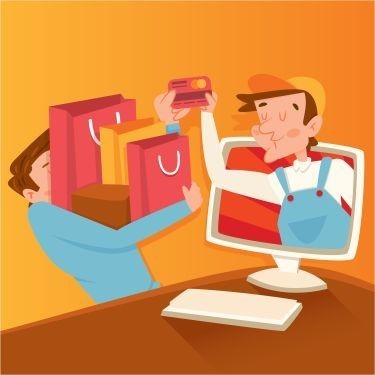
Samples
 How to maintain your anonymity online
How to maintain your anonymity online
Did you know that, according to Motherboard, hackers stole personal data for 2 million T-Mobile customers? So, if you care about your credit card info, medical records, and so on, you should take all the necessary precautions to ensure that this precious data doesn't fall into the wrong hands.
People have learned that private browsing sessions will help them stay safe, but the reality is different: attackers can still read the data that you are sending and receiving over the web by utilizing man in the middle attacks. It's true that https-based sites are more secure, but the utilized SSL security technology has its flaws as well.
To stay safe online, be sure to use Two Factor Authorization (2FA). Many popular sites make use of this security service, which will significantly increase security. Here's how it works: you can't log into the desired accounts without having access to the user/pass combination AND a unique 6-digit number that is sent your way either via SMS, or using a dedicated software application. The nice folks at Two Factor Auth have created a comprehensive list of sites that support 2FA; Facebook and Linkedin provide this important security feature, for example.
It's time to get rid of your social media friends, fans and followers. If you are like most people, I bet that you've got hundreds of Facebook "friends", but you've only met a few of them in person. Some of these guys and gals may be nice, but I guarantee that others are villains who try to gather as much info as possible about their potential targets before launching a devastating cyber attack.
So yeah, you may want to brag with your 1000+ social media fans, but it's best to get rid of them for good. You may be the primary target, or they may also want to go after your spouse, children, friends, and so on. You don't want your kids' photos to be used for nefarious purposes, right?
If you are online, I bet that you've got a smartphone as well. And you may have several dozens, or even hundreds of apps installed on it, isn't it? The bad news is that each new application can pose serious security risks. Therefore, if you don't really need a particular app, you should uninstall it right away. Lots of hackers embed their evil code into an innocent looking app, or create a nice looking game which downloads malware in the background as soon as it is run for the very first time.
Then, turn off location services. I know that you need them anytime you run your favorite GPS software, but be sure to disable location as soon as you have reached the desired destination.
Don't use a simple pin code or a pattern to unlock your phone; anyone can see it or guess it easily. Always use your phone's biometric security features if they are available, or at least set up, and then use a strong password.
Use a Virtual Private Network. It's a piece of software that will encrypt your device's communication with other servers and online services, reducing most security-related risks. Always use apps that encrypt communication to send and receive messages and emails.
Don't use third-party app stores. They may offer some paid applications for free, but they may also install malware on your smartphone and/or tablet.
Here's the deal: it is almost impossible to stay 100% anonymous online. However, by applying the tips highlighted above, you will make it much harder for cyber criminals to get access to your data.